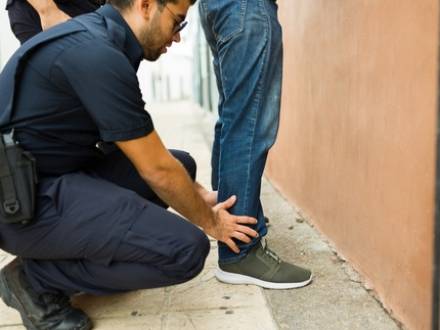When Can Texas Police Search Without Consent?
 Police searches are one of the most common points of conflict between law enforcement and citizens. Many people believe officers always need permission to search your home or car, but that is not true. In Texas, there are specific situations when officers may search your vehicle, home, or person without your consent.
Police searches are one of the most common points of conflict between law enforcement and citizens. Many people believe officers always need permission to search your home or car, but that is not true. In Texas, there are specific situations when officers may search your vehicle, home, or person without your consent.
As of August 2025, both Texas law and the Fourth Amendment to the U.S. Constitution recognizes exceptions to the warrant and consent requirement. Understanding when you can legally refuse a search, and when you cannot, is critical to protecting your rights. If you think the police may have already done an illegal search on you, contact our Tarrant County, TX criminal defense attorney now. Attorney Dameron has more than 20 years of experience fighting for people accused of crimes.
When Can Police Search Your Vehicle Without Consent?
Texas police can search a car without a driver’s permission in several circumstances.
Probable Cause
If officers reasonably believe your vehicle contains evidence of a crime, they can search without a warrant or consent. Case: Carroll v. United States (1925).
Search Incident to a Lawful Arrest
When someone is arrested, police may search the vehicle for weapons or evidence within reach. Case: Arizona v. Gant (2009).
Plain View Doctrine
If an officer sees illegal items in plain sight, they may lawfully seize them and conduct further search.
Inventory Searches
After towing or impounding a car, police may perform an inventory search to log its contents. Case: South Dakota v. Opperman (1976).
When Can Police Search Your Home Without a Warrant?
The home has the highest constitutional protection, but even here, officers can sometimes enter without consent.
Exigent Circumstances
If police reasonably believe waiting for a warrant could lead to harm, evidence destruction, or escape, they may enter. Case: Brigham City v. Stuart (2006).
Consent from Another Occupant
If a roommate or co-resident gives consent while you are absent, police may enter legally. Case: Georgia v. Randolph (2006).
Plain View
If officers are inside lawfully for another reason, they may seize illegal items left in plain sight.
When Can Police Search Your Person Without Consent?
Police also have authority to search individuals without consent in limited situations.
Search Incident to Arrest
Following a lawful arrest, police may search your body and belongings. Case: Chimel v. California (1969).
Terry Stop / Stop and Frisk
If an officer reasonably believes you are armed and dangerous, they may perform a limited pat-down. Case: Terry v. Ohio (1968).
Probation or Parole Terms
If you are on probation or parole, you may have waived certain rights, allowing searches without further consent.
Protect Your Rights, Even If You Are Being Searched
If an officer asks for permission to search, calmly say that you do not consent to any searches. Stay respectful and compliant (do what the officer asks), while making your refusal clear. Once you are let go or are in jail and can contact a lawyer, call a defense attorney right away.
What If the Police Already Violated Your Rights?
If police in Tarrant County or Fort Worth conduct an illegal search, any evidence they obtain may be excluded under the exclusionary rule. At The Dameron Law Firm, we fight aggressively to challenge illegal police searches, file motions to suppress illegally gotten evidence, and defend clients in plea negotiations and criminal trials. Give yourself the best shot by working with the best.
Contact a Fort Worth, TX Criminal Defense Lawyer for Illegal Searches and Seizures
If you believe your rights were violated in a search of your car, home, or person, you need experienced representation. Contact a Tarrant County, TX criminal defense attorney at The Dameron Law Firm today to schedule your free consultation. Call us at 817-222-0624 to protect your rights and build a strong defense.

 817-222-0624
817-222-0624







